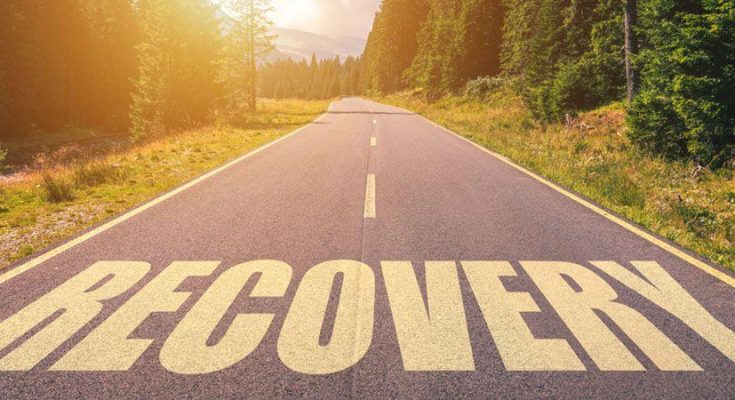Addiction is a highly personal issue, as people become addicts for various reasons. But as a condition, it makes the entire families and communities suffer. It can exhaust you and your loved ones mentally, physically, and financially. But salvation is possible.
If you’re aware of your addiction problem, the first step toward healing is to admit it. A person in denial won’t be able to change because they don’t see the problem. Then, you can start rehab. On this link, learn more about standard rehab treatments.
Recovery is a phase that starts with rehab. Its success will depend on you and your desire to change and heal. So you must understand the nature of your addiction and how it affects you. But you must also gather helpful information on the recovery itself.
Table of Contents
It Won’t Be Easy
Rehab can be a long and difficult process, different for every individual. The length and treatment methods will vary from person to person. These largely depend on how strong a person is in their desire to recover, the discipline, and commitment to manage recovery. So the entire process can last anywhere from several months to several years.
While recovery can be a long process, it includes days and months of freedom but also facing some challenges. It’s important to realize that this process will involve a lot of setbacks. But you should embrace as many as you can to experience recovery’s benefits. So it won’t be easy, but it will be worth it.
You Need Professional Help
Professional help can be of great importance when you decide to start rehab. Some people are strong enough to face this problem alone, but most addicts seem to be lost when quitting. If you’ve tried that several times with no success, it’s time to get help.
Often, addiction recovery requires assistance from rehabilitation programs or therapy. Professionals can help you detoxify your body and develop healthy coping mechanisms. They can also help you understand your addiction and the underlying causes. And what’s most important, they offer you support and counseling even after finishing rehab.
Customized Rehab Programs
There’s a variety of treatments and rehab programs customized to the addict’s needs. This individual approach can be the key to successful recovery. For example, some addicts can undergo rehab at home, while others need inpatient treatments. And before you get into rehab in Littleton, your condition requires a detailed expert assessment.
Inpatient treatments help people stay sober and aware of the addiction risks of addiction. Still, they can’t guarantee recovery. In fact, a high relapse rate is their unfortunate reality. That happens because patients have been under constant supervision for most of their rehab. As a result, people in rehab centers are deprived of the everyday life that triggers temptations.
So when faced with real-life situations and challenges one day after leaving the rehab center, they could easily fall for vices again. So the vital part of the recovery is to face the challenges of reality as soon as possible and avoid isolation while undergoing inpatient rehab. Thus, the former addicts will more easily create a defense mechanism and understand the addiction triggers harmfulness.
Support Is of Utmost Importance
For people in recovery, a support system can be invaluable to help them stay sober. It all starts with a family and close people who should take part in your rehab. Family therapies will help you work through issues and support each other.
Family counseling is an important component of addiction recovery. It allows members to explore the effects of the addiction on each other and their relationships. As a result, family counseling will enable people to reconnect and support one another through hard times.
Also, finding non-drug-using friends and establishing a healthy social circle will help. Also, you can get close to someone who has successfully recovered from addiction. Their experiences can help you, and you can rely on them if an abstinence crisis occurs. They are probably going through or have already gone through it so they can help you firsthand.
Enabling Won’t Help
Your loved ones should be by your side, supporting your recovery but not enabling the addiction. Unfortunately, it’s a common trap most addicts’ family members fall into. Enabling can make it harder for you to pursue addiction recovery.
Enabling is harmful to both addicts and enablers. It may seem like a loving gesture, but it’s counterproductive to the recovery process because it prevents the addict from feeling the full consequences of their actions. So your loved ones should stop denying your need and let you face the consequences. That’s tough love, but the best way to help you recover.
Relapse Happens Often
Even after the rehab, addicts are not and will never be completely recovered. So they should be cautious not to fall for addiction triggers for the rest of their lives. After completing treatment, they must learn to avoid the triggers that may lead to relapse.
Relapse is often likened to a cascade of dominoes. The first domino may be putting yourself in a high-risk situation. The second might be a lapse in judgment. And the third may be a denial of a problem that prompted the initial behavior. Each domino falls in a chain of events that leads to relapse.
One of the best ways to prevent a relapse is to build a support network. Turn to sober friends to know you’re not alone. Joining a self-help group is also a good idea. It’s a great, nonjudgmental environment to discuss your experience.
Relapse can be a very frightening thought. But it’s perfectly normal in recovery. Although you’ve made a mistake, it should not interfere with the process. So pull yourself together and move on.
Below are some handy guidelines on overcoming relapse crisis:
https://www.mic.com/life/reality-of-relapse-addiction
Quitting vices and bad habits is a long and stressful journey, and you can’t expect it to be easy. Also, relapse is not uncommon. But don’t worry; if you arm yourself with willpower, devotion, and support, it’s possible to achieve sobriety and make addiction a long-gone history.





